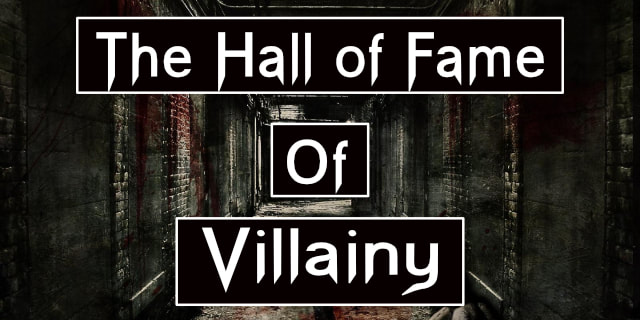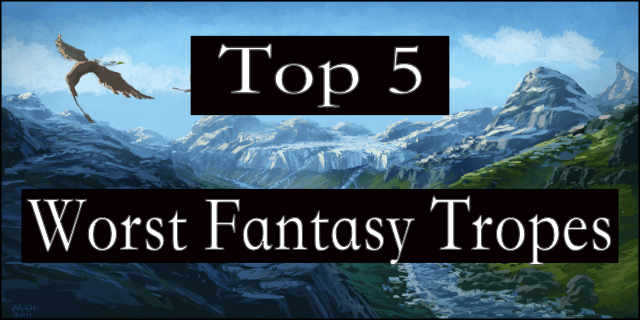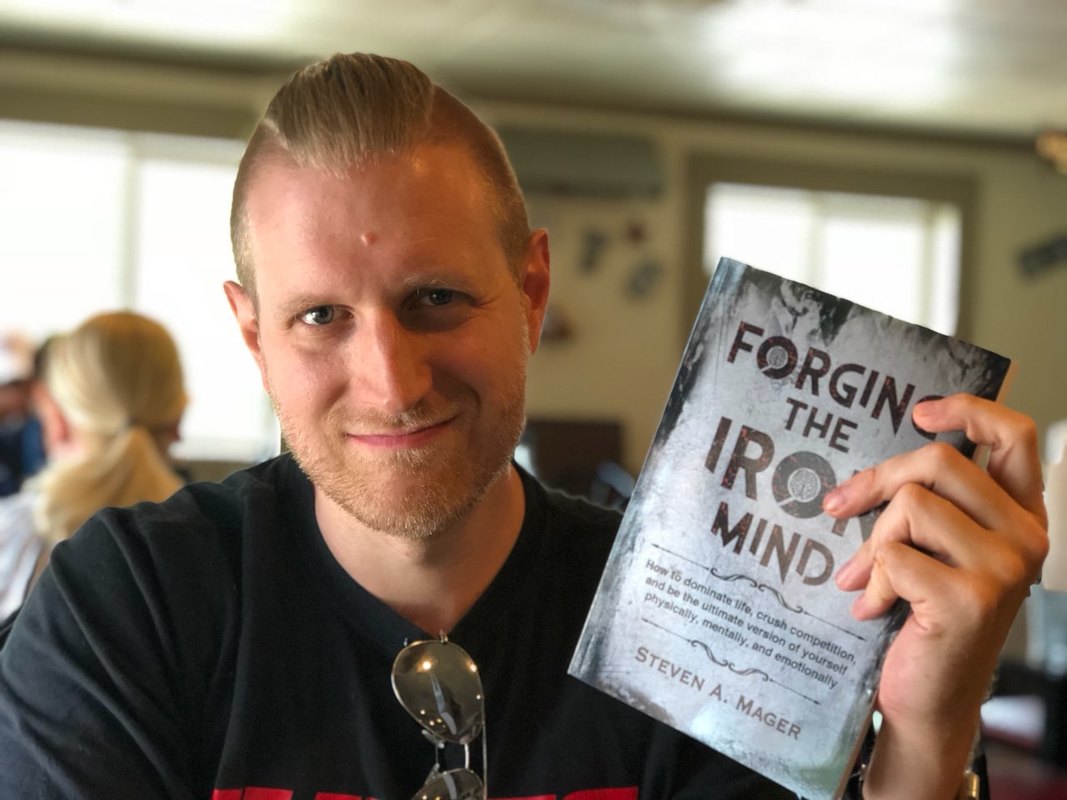|
Hot take: The Dark Knight isn’t the classic it’s made out to be. Now that you’ve likely closed this internet window and blocked me on social media for such heresy, let me explain. I remember leaving the theater thinking I just saw the greatest movie of all time, but after viewing this movie dozens of times I came to realize one thing: We got tricked into thinking we saw a great movie because of an iconic performance of one of the greatest villains of all time. Heath Ledger was so good as the Joker, that he convinced us we saw a better movie than we did. Having re-watched this film many times, the plot and sequencing make absolutely no sense, and the choreography and cinematography are well below any modern Marvel movie, and there are ridiculous plot devices everywhere. Such is the power of compelling villainy. Arguably the most iconic portrayal of one of the greatest villains of all time sold us all on the greatness of the film. It could even be argued that the entire reason Batman as a character is even good is the caliber of his rogue’s gallery, many of which are more compelling than he is. So before I get into the list of the best villains of all time, let’s look at some characteristics that go into making a great villain, many of which I drew upon for my work, The Witchbreaker Saga. 1. Motivation: It is not enough to be generically evil. One can get away with this as Tolkien and Rowling did if everything else is completely bulletproof, but most cannot. 2. Perspective: Every great villain believes they are the good guy. There needs to be REASONS they do what they do, that make logical sense to them. 3. Challenge the hero: Ideally, the villain should make the hero question themselves, and reflect upon their own values, and even in defeat leave a lasting impression, irrevocably changing the hero forever. 4. Be a legitimate threat: The villain has to get a win at some point, otherwise they aren’t credible. If the villain never gets a big one over on the hero, are they really a plausible threat? 5. Intellectual Roots: It helps if the villain’s motivations are rooted in legitimate philosophy, giving intellectual depth to their characters. 6. Over the top: You can get away with having few of these traits as long as you go sufficiently over the top on any one or two of them. One note villains can work, if they are sufficiently outrageous. There are only a handful of villains I know of that check every single one, and I’ll go over them at the end. Now, with these qualities in mind, let’s look at the best of the bad. 10. Cersei Lannister: In terms of machinations, I’m not sure there’s a better modern female villain than Cersei. Even though several characters from GOT such as Ramsay Bolton or even Joffrey could make this list, it’s Cersei who pulls the strings from beginning to the end. 9. Dr. Doom: Despite poor showings in two movies, comic fans know the real deal. Capable of outsmarting heroes on multiple levels, running an entire country and using diplomatic immunity lands the good doctor at the forefront of legendary comic villains. 8. Darth Vader: As far as badass villains go, I’m not sure you can do any better than Vader. I will say however, I love what they are doing with Kylo Ren, he is so different from the original badass, yet still compelling. Vader’s presence is so intimidating, he doesn’t need a philosophical lesson or intellectual superiority to land near the top of any pantheon of villains. 7. Professor Moriarty: It always helps if your villain is the intellectual equal of the hero, and very few adversaries have become more legendary than Sherlock Holmes’ rival and math genius, Moriarty. Sherlock Holmes’ deductive powers are near supernatural, so without the dark mirror of Moriarty, perhaps Holmes would not have become as legendary of a character. 6. Dracula: Hundreds of incarnations over the years, and yet we never tire of one of the original horror icons. Few villains combine history, brutality, romance, and survival necessity the way Dracula does. Vampires have become an iconic villain type, so the king of vampires reigns supreme at the top of the list. 5. The Joker: Gotham’s resident chaos agent has come in many forms over the years, and he does a few things really well: He is an over the top legitimate threat that is the perfect parallel to the hero. He doesn’t just cause havoc; he’s killed many over the course of his career. You will not get a deep philosophical lesson from him, but his theatrics and homicidal attitude score him a place among the best of the best. 4. Thanos: One of the very few to tick nearly every box. His Malthusian philosophy coupled with the fact that he won and wiped out half of humanity means he exists in rarified air among villains. Brains, brawn, and badass equals a foe that required the entire Marvel universe to bring down. 3. Anton Chigurh: One of the few to actually give me the creeps. Javier Bardem’s iconic role as the cold instrument of fate in No Country for Old Men displays not only Terminator like aggression and brutality, but intelligence and toughness. As far as unenhanced humans go, they don’t come more cold and calculating than Chigurh. Unlike the Terminator, Chigurh succeeded and killed everyone, even people unrelated to the central conflict, simply because he promised to do so. 2. Magneto: Again, another that ticks nearly every box you want in a villain. Magneto sees the oppression of mutants as the same situation as the Holocaust he experienced as a child, giving his character a history and gravitas nearly unmatched among villains. In addition, he has defeated the X-Men many times, and it could easily be argued he’s justified in many of his actions. For years, I thought he was the most compelling villain ever created. Until the next one. 1. Ozymandias: "Do it?" Dan, I'm not a Republic serial villain. Do you seriously think I'd explain my master-stroke if there remained the slightest chance of you affecting its outcome? I did it thirty-five minutes ago.” The masterstroke at the end of Watchmen was one of the greatest acts of villainy ever put to page or screen. And, it could be argued that it worked exactly as planned in uniting the entire world in peace. The best villains are not only smart, strong, and cunning, but believe 100% in what they do. Ozymandias beat everyone, and in the ultimate ends justify the means moment, executes his plan and fulfills every criteria listed above to arrive in the hall of fame of villainy. Interestingly, many of these plans involve ushering in world peace or achieving a noble end through horrific actions others are unwilling to execute. So, with all of this said, who did I miss? Let me know on social media! Steve Mager If you enjoyed this article, please share it and follow me on social media: Facebook: www.facebook.com/StevenAMager Twitter: https://twitter.com/StevenAMager Instagram: https://www.instagram.com/steve_mager/ Get my book, Forging the Iron Mind: [https://amzn.to/2uxRvCs]
1 Comment
Fantasy has been my favorite genre for as far back as I can remember. Be it movies, TV, or books, I’ve always been fascinated by alternate universes featuring fantastical creatures and people, elaborate magic spells and artifacts, and epic quests. Growing up, Tolkien, Piers Anthony, and Terry Brooks were a few of my favorites, leading to present day masters such as Sanderson, Rowling, and Rothfuss. Characters such as Conan, King Arthur, Legolas, and many others shaped my perception of the fantasy genre, eventually leading to a desire to write one of my own. When I set out to write The Witchbreaker Saga, I made a list of things that enable immersive fantasy and also a list of things I wanted to avoid within the genre. Eventually I’ll write a post about the tropes I like, but for now, let’s settle in and look at the tropes I try to avoid that shaped my work. Let me preface this by saying it is possible to still use these tropes and get away with it, as long as your characters are interesting, your world complex, and the conflict realistic.
5. The oddly specific magical item that saves the world or completes a quest. Our heroes have encountered a problem. Perhaps it’s a curse, plague, sickness, or a villain with a specific power. What’s a writer to do? Why, invent a magical item or god that just happens to possess the exact effect needed to counter that problem. Serialized fantasy TV such as Legend of the Seeker, Xena, and Hercules are most responsible for this one, yet it is still seen in books as well. This trope becomes even worse when this object is encountered later in the book as a Deus Ex Machina, only existing to solve the heroes dilemma without sufficient foreshadowing. Once could argue that Lord of the Rings possess multiples of these such as the eagles, yet, Tolkien’s skill allows us to overlook them. Most of us aren’t anywhere in the same galaxy with Tolkien, so we must ensure we aren’t inventing oddly specific items to solve problems out of thin air. Out of the multitude of examples, my least favorite has to be time manipulation, such as the Time Turner in Harry Potter, which could have been used to solve any number of problems, yet only cropped up once to save Buckbeak and Sirius Black, and for Hermione to take more classes. 4. Stereotypical Races It still surprises me how so many writers still rely on the classic Tolkien-esque races. Be it the savage but honorable orc, or the wise, beautiful, and immortal elves, virtually every fantasy story still relies heavily on these stereotypes. Warhammer, Magic the Gathering, Warcraft, and many others still use these classic racial stereotypes, rarely injecting anything new or original into the formula. 3. The One Dimensional Villain I love Harry Potter. I even own a Sorting Hat, and have read each book and watched each movie multiple times over. Yet, Voldemort has to be one of the worst villains ever conceived. Despite the world of Harry Potter possessing some of the best world building of all time, somehow Voldemort ends up as one of the worst one note villains in popular fiction. Generically evil villains have to be one of my least favorite tropes in any media, because in real life, every villain believes they are the in the right, and can usually list off a litany of reasons. Even the worst of the worst, such as Hitler, Stalin, and Mao, could easily articulate why what they were doing was correct in their mind. Let me give an example of one of the greatest villains ever created: Magneto, from the X-men. Unlike many of these villains, Magneto has actual, believable, and sympathetic reasons why he does the horrific things he does. As a Holocaust survivor, he saw what happened when a certain class or race of people were targeted, and he is determined not to allow that to happen again. So even though he is committing horrendous acts, we can at least understand why, and on some level, empathize. Thanos is another. His Malthusian philosophy is actually a real philosophical belief, and in his mind, he is the only one with the will to ensure the long term survival of the universe. 2. Idiotic Decision Making This rakes on my last nerve. If there’s one thing I can’t stand in fiction, it’s the hero making absurd decisions and justifications to advance the plot. Not confined only to the realm of fantasy, this one is everywhere, but most prevalent in horror. This usually ties into themes related to a trope known as Joker Immunity, where the hero utterly refuses to kill the villain, no matter how much havoc they’ve created, i.e. Batman refusing to kill the Joker, thus enabling the Joker to kill hundreds or thousands more. This is particularly idiotic since no such a thing exists in real life. No one would bat an eye at executing Hitler on the spot, yet Batman is perfectly willing to keep the Joker alive no matter how many dozens of times he’s broken out of Arkham Asylum and murdered thousands. At a minimum, if the villain has perpetrated sufficiently evil acts, the hero should at least attempt to kill them. Now, if the villain escapes because of their own cunning or skill, that is a turn I can live with. 1. The Chosen One and The Prophecy The alpha and omega of overused tropes. The stable boy that finds out he’s the only one that can save the kingdom, and he’s actually a secret prince. The maid that wakes up one day infused with some magical ability prophesied to save the world. Listen, I’m all for a hero’s journey. It’s a classic storytelling arc that still works to this day if executed properly. However, the Chosen One irks my last nerve. When it just so happens that this completely unremarkable person is destined to save the world, it drives me bananas. I realize this plays on the psychological need for us to feel special, that we wish we could wake up one day and be granted supernatural powers leading us to greatness and fame. Many people live unremarkable lives, so this sort of wish fulfillment psychology will always work on some level. The worst part of this trope is that many times it grants what’s known as Plot Armor, which is a term given when you absolutely know the hero isn’t going to die. This is a big reason Game of Thrones got so popular, is that the perception of characters having plot armor was shattered multiple times over. The other element of this trope I hate, is that it sometimes demonizes talent and hard work. Yeah, I know you worked your entire life and prepared diligently, but this lazy doofus over here was born to save the kingdom, so hey, sorry about your luck. What’s your least favorite fantasy trope? Hit me up on social media and let me know! Steve Mager If you enjoyed this article, please share it and follow me on social media: Facebook: www.facebook.com/StevenAMager Twitter: https://twitter.com/StevenAMager Instagram: https://www.instagram.com/steve_mager/ Get my book, Forging the Iron Mind: [https://amzn.to/2uxRvCs] |
AuthorSteve's blog where he talks about anything and everything: writing, fitness, mindset, movies, TV, and his favorite stuff. Archives
November 2019
Categories
All
|
Copyright © 2015





 RSS Feed
RSS Feed